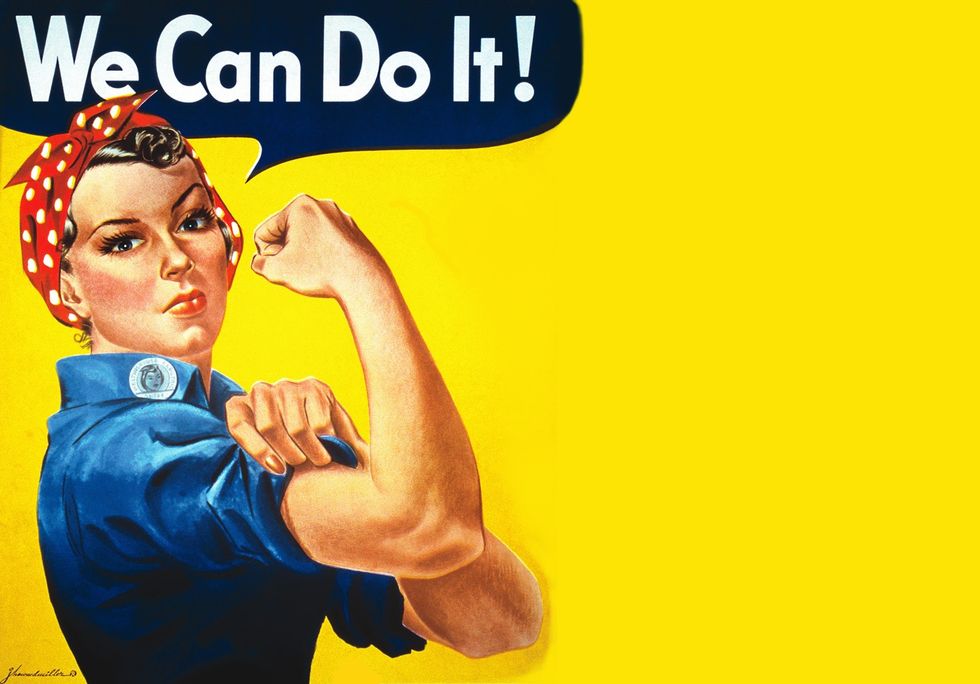99 congresswomen, 7 federal executive cabinet members, 72 statewide executives, and 249 mayors—members of the American female population hold all of these positions.
America has come so far since the 1920 culmination to the fight for women’s suffrage. There are still many Americans, however, who do not view females as an equal voice in the country’s political realm.
In recently filmed Fox News’ “The Five,” host Kimberly Guilfoyle suggested that young women should excuse themselves from voting in midterm elections for similar reasons that many think they should be excused from jury duty—because they don’t share the same “life experience” as older women.
“They’re like healthy and hot and running around without a care in the world,” she stated. “They can go back on Tinder or Match.com.”
With this sexist & feminist point-of-view taking over many adolescents’ TV screens, Internet web pages and Facebook posts, it is troublesome of what the future holds for women voters. However, data shows that in every election since 2000, more women who were eligible to vote have shown up to vote than men who were eligible, according to the Center for American Women and Politics (CAWP).
What are viewpoints like this teaching our country? Discouraging any young person to vote is a shame in itself, but specifically targeting young women is an outright disgrace to the progress America has made since the early 20th century.
Fortunately, there are many groups fighting to change theses stereotypes that some have yet to overcome, whether it be towards gender or age.
One of these groups is The League of Women Voters. This group is making continuous strides to change and improve the status and reputation of female voters across the United States. The League was founded in 1920, shortly after the women’s suffrage movement was passed. They have worked effortlessly at a national level through more than 800 states and local Leagues.
The group formed during the movement to secure the right for all women to vote. The League is now working to expand participation and give a voice to all Americans, women and men. Their main goal is to make democracy equal for all citizens or to at least educate as many people as they can about the voting system and process.
The League focuses on three main issues: voting rights, improving elections, and DC voting rights. They advocate for proactive reforms, which include expanding early voting and online voter registration, ensuring existing pro-voter laws are followed and advocating against barriers to the voter registration process.
“The stigmas toward women voters arise from their being women, not from their being voters per se. Overcoming the stigmas toward women – e.g., that they are not as smart as men and not as capable of thinking independently – is a long process,” explains League of Women Voters member, Mary English, Ph.D.
Because voting is the core of democracy and one of the only ways to have one’s voice be heard in the American society, the League focuses on increasing the amount of registered voters there are, educating voters, especially at high schools and colleges, and, most importantly, educating voters.
Not only is voting participation important to America’s democracy, but having educated and informed voters is equally key to making sure elections and voting run to their full potential and effectiveness. The League educates voters about candidates in federal, state and local races each year. They even occasionally host candidate debates across the country, which allows voters and League members to gain an inside perspective of the election process.
Dr. English explains how the stigma toward women voters has partly formed because until the mid to late 19th century, females didn’t even have the opportunity to go to college. The males in families were favored over females and expected to be the “breadwinners” of the family. Women were thought to be too “weak” to tackle and understand serious political matters.
Overcoming female stereotypes is not something that can be accomplished simply in a year or even a decade. By further educating today’s young women, the League of Women Voters hopes to produce strong, knowledgeable and reasonable women who can hold their own in a political debate, and at least have the basic confidence to go vote.
“It’s up to all of us to demonstrate through our words and actions that this over-protective, belittling view of women is absurd and grounded in misogyny,” English proclaims.




 Today I am
Today I am  Go to the gym
StableDiffusion
Go to the gym
StableDiffusion
 Listen to more music
Photo by
Listen to more music
Photo by  Have more patience
StableDiffusion
Have more patience
StableDiffusion













